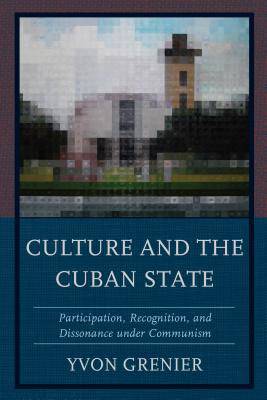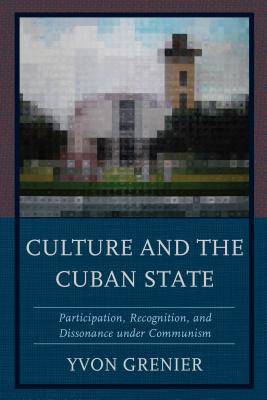
- Afhalen na 1 uur in een winkel met voorraad
- Gratis thuislevering in België vanaf € 30
- Ruim aanbod met 7 miljoen producten
- Afhalen na 1 uur in een winkel met voorraad
- Gratis thuislevering in België vanaf € 30
- Ruim aanbod met 7 miljoen producten
Zoeken
Culture and the Cuban State
Participation, Recognition, and Dissonance under Communism
Yvon Grenier
Hardcover | Engels
€ 213,95
+ 427 punten
Omschrijving
This book examines the evolution of cultural policy in Cuba since the 1959 revolution, the connection between cultural policy and political development, and the extent to which cultural actors are agents for change for the reproduction of dominant values and institutions.
Specificaties
Betrokkenen
- Auteur(s):
- Uitgeverij:
Inhoud
- Aantal bladzijden:
- 320
- Taal:
- Engels
Eigenschappen
- Productcode (EAN):
- 9781498522236
- Verschijningsdatum:
- 8/11/2017
- Uitvoering:
- Hardcover
- Formaat:
- Genaaid
- Afmetingen:
- 577 mm x 231 mm
- Gewicht:
- 576 g

Alleen bij Standaard Boekhandel
+ 427 punten op je klantenkaart van Standaard Boekhandel
Beoordelingen
We publiceren alleen reviews die voldoen aan de voorwaarden voor reviews. Bekijk onze voorwaarden voor reviews.








